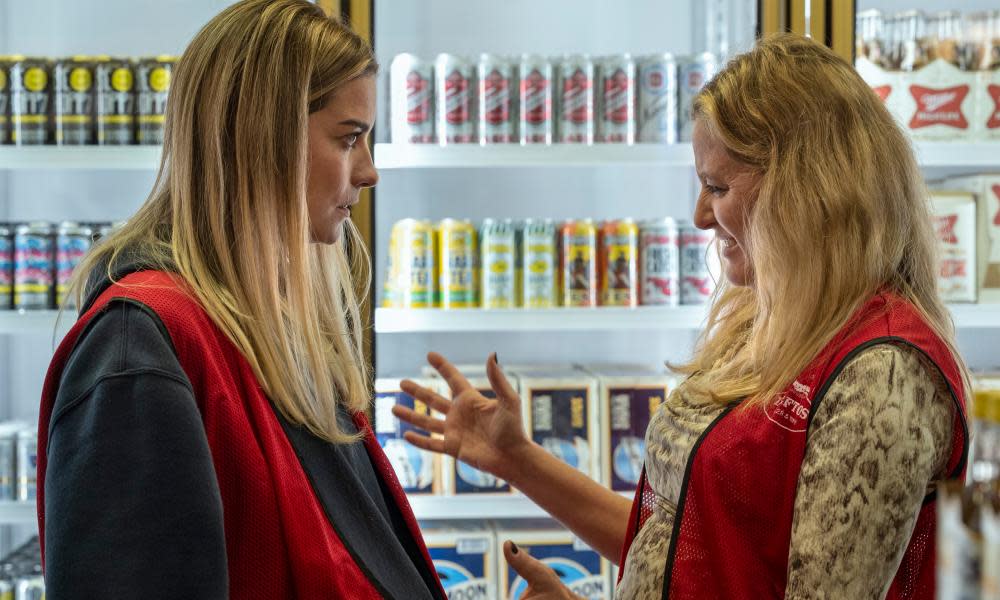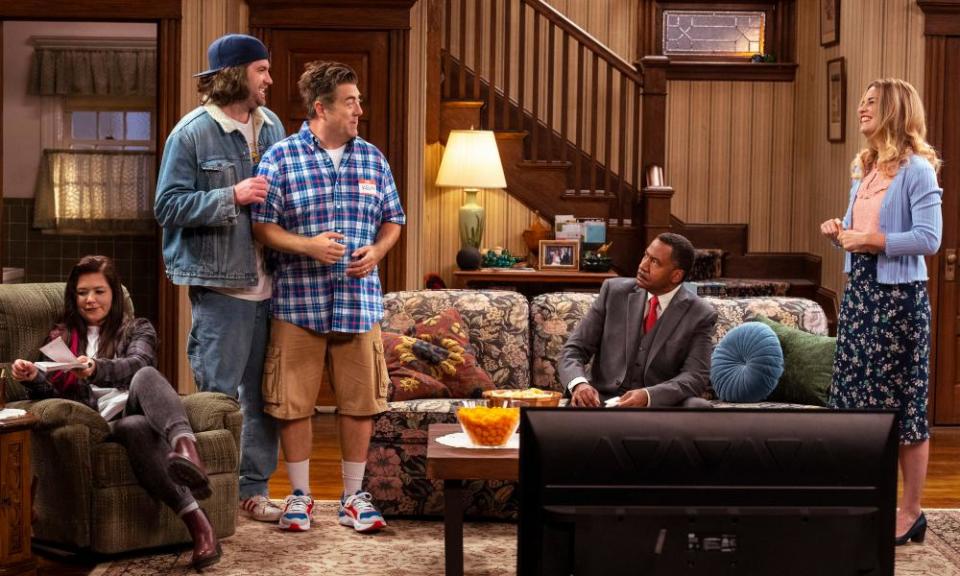Kevin Can F**k Himself review – the sitcom wife finally snaps in Breaking Bad-lite

It’s a classic multi-camera sitcom setup: an ordinary Joe sitting on his couch in a brightly lit sitting room, trading beer-fuelled wisecracks with his dad and his buddies while a laughter track greets every utterance. His inexplicably beautiful wife appears – a new butt of new jokes! – to roll her eyes at the schlub on the sofa, gather glasses from the coffee table and leave more beer.
Then she returns to the kitchen on her own and everything darkens, goes quiet. Artifice disappears. She closes her eyes in despair and gashes her hand as she shatters one of the merry gang’s empty beer steins against the counter.
Such is the setup of new Amazon drama (or comedy-drama) Kevin Can F**k Himself, which deconstructs the sitcom format to turn the lens on to the most traditional, and traditionally second-string, character of them all: the patient, beleaguered wife. Here, Annie Murphy (breakout Emmy-winning star of Schitt’s Creek) is the long-suffering Allison. She is married to boorish Kevin (Eric Petersen), works at the local liquor store owned by her aunt and uncle, and dreams of a better life in a home they can call their own – perhaps even outside the drab city limits of Worcester, Massachusetts.
The conceit – a happy facade in front of friends and family, bleak realism when she’s “off” – is a good one, a metaphor for the human condition we can all get behind. It promises a new and highly fertile way of examining both the cultural messages we are shaped by and the divisions between our – particularly women’s – public and private selves.

The problem comes as the series unfolds (at least as far as the fourth episode – the remaining quartet were not released for review). Instead of deepening its examination of Allison’s situation, it allows the “realistic” side of the equation to develop into a crime drama, after Allison discovers that her unrepentant spouse has squandered their years of savings for a house deposit.
It then becomes a kind of Breaking Bad-lite, as Allison begins to plan Kevin’s murder with her hitherto hostile neighbour Patty (Mary Hollis Inboden). Instead of following the breakdown of a boundary between reality and fiction, we end up watching two increasingly unrelated narratives – the better of which keeps getting interrupted by a clunking 90s sitcom, complete with dull storylines about get-rich-quick schemes or the boss coming to dinner that neither illuminate nor complicate Allison’s story, nor create any thematic symbiosis.
Murphy and Inboden keep you watching, though the whole cast is strong. Murphy switches from dark to light, hitting every comic and emotional beat with an effortlessness that makes you marvel it took her this long to find the limelight. And Inboden’s dry, world-weary performance simply rivets you to the screen every time she appears. Their scenes together – especially the quieter ones, less concerned with making bad drug deals and trying to procure poison – are absolute high points.
Maybe the show pulls its two narratives together in the second half of the season. I hope so. It’s too good an idea, and features too many great performances, to waste.

 Yahoo News
Yahoo News 
